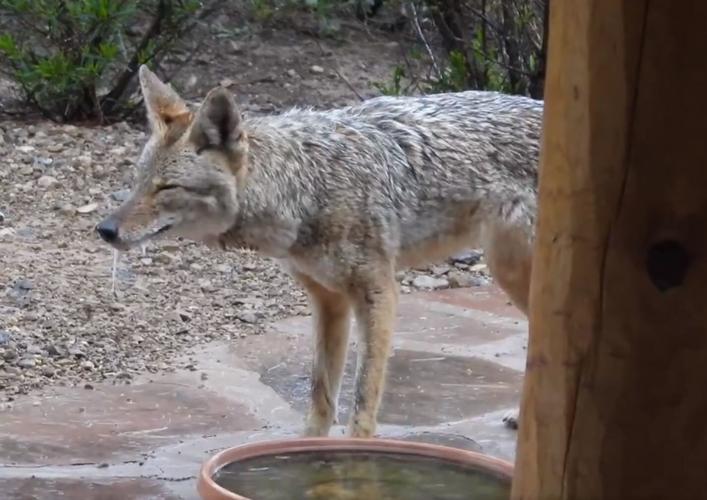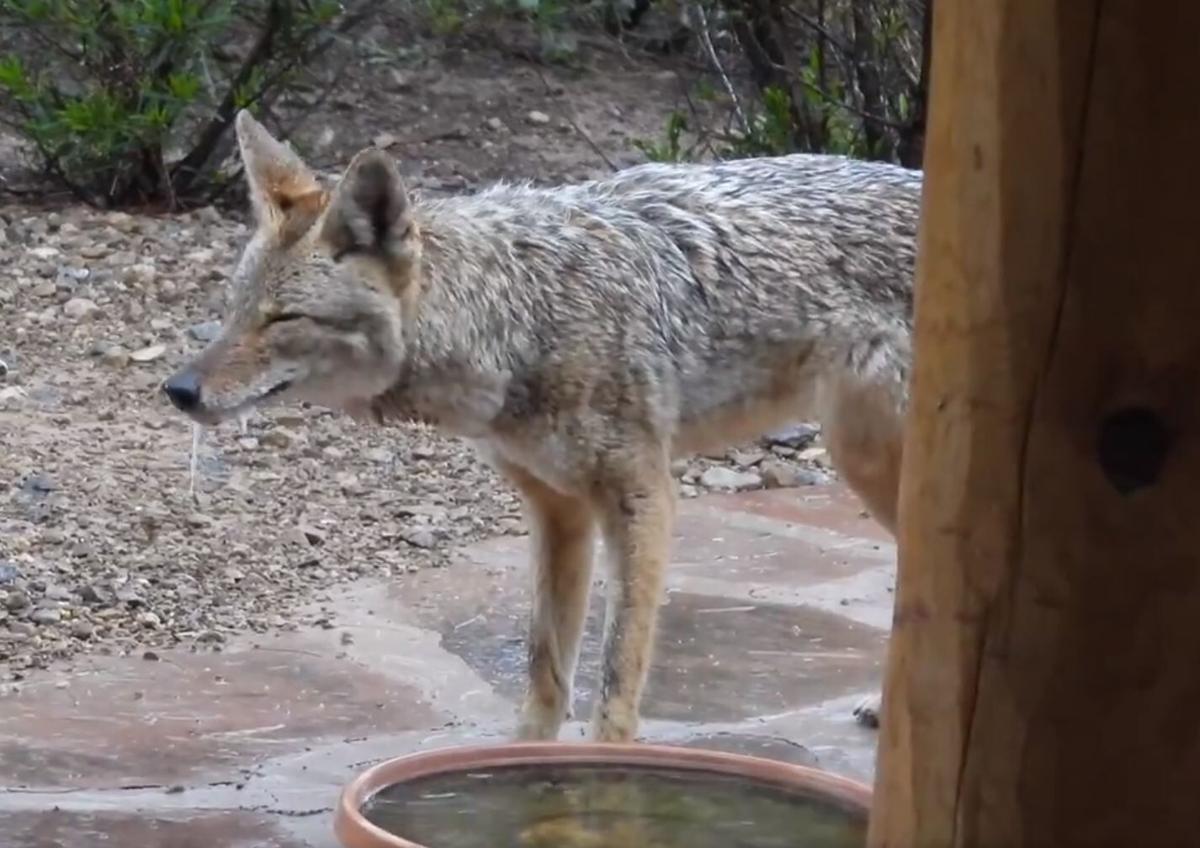Two more cases of rabies have been confirmed on the east side of Tucson, but state wildlife officials are not calling it an outbreak just yet.
Three horses were attacked by a coyote at two neighboring properties off of Harrison Road north of Irvington Road on Feb. 22.
The coyote was trampled by the horse in one of the attacks, which allowed wildlife officials to recover and euthanize the animal, said Arizona Game and Fish Department spokesman Mark Hart.
A test on the coyote came back positive for rabies on Wednesday, Hart said.
Security camera footage shows a rabid coyote attacking two horses in Tucson.
Post-mortem testing also showed rabies in a fox from the Vail area that was dropped off at the Tucson Wildlife Center on Feb. 21.
Hart said there have now been four confirmed cases of the fatal disease in the past six months and at least as many cases where rabies was suspected but the animal could not be collected for testing.
“There’s a lot of smoke with this, and there’s somewhat of a cluster on the east side,” he said. “We need to raise public awareness.”
The other confirmed cases so far include a bobcat that attacked a woman in her carport off east Redington Pass Road and was killed by authorities on Nov. 27 and another diseased bobcat in Benson last year.
The unconfirmed cases came on Feb. 1, when a gray fox was filmed acting strangely on the patio of a home on East Chukut Trail, not far from Agua Caliente Park; Jan. 21, when a bobcat bit and scratched a man on Cactus Forest Drive in the Rincon Mountain District of Saguaro National Park; Jan. 13, when a skunk bit a man and chased others at the Proctor Trailhead in Madera Canyon; and Dec. 27, when a gray fox bit one person and tried to attack another at the Molino Basin campground in the Catalina Mountains.

Arizona Game and Fish officials were searching for this gray fox that was filmed acting strangely on the patio of an east side home on Feb. 1, but the possibly rabid animal was never found.
Rabies was also suspected in the case of a sick, slobbering coyote that was filmed on Feb. 10 in Tucson Estates, a west side neighborhood off Kinney Road near Ajo Highway, though Hart said distemper or even poisoning could also explain that behavior.
Another coyote was found dead in the Starr Pass area about two weeks ago, he said, but that animal did not have rabies.
Last week’s coyote attack on the horses was partially captured by the security cameras at a house on Millmar Road.
In one video clip, the animal enters a corral and gets kicked by a horse after nipping at its back legs. In the second clip, the coyote latches onto the tail of a miniature horse in a different corral, only to get swung around in circles by the horse. The predator then briefly grabs the miniature horse by the fly mask covering its face before being shaken off and trotting away.
Dr. Jonathan Henrichs from Reata Veterinary Hospital is the equine veterinarian who treated those horses. He said both of them are doing fine, thanks to up-to-date rabies vaccinations and only minor bite wounds.
The horses will be kept in state-mandated quarantine for 45 days, just in case, Henrichs said.
Rabies is “100 percent fatal” for any animal that contracts the disease and is not vaccinated, he said.
The third horse was attacked at an address on Graf Lane, one street north of Millmar.
Henrichs didn’t need to see the test results to know the coyote in question was almost certainly rabid. “It is extremely rare for a healthy coyote to attack a horse,” he said.
Ultimately, Hart said, it will be up to a Game and Fish veterinarian or the Arizona Department of Health Services to decide whether the current surge in rabid wildlife qualifies as an outbreak, but the 28 cases recorded in Pima County over the past year are well below the annual average of 57 seen from 2014 through 2019.
That surge in cases peaked at 77 in 2017.
Rabies is transmitted through saliva, with bats, skunks and foxes as the most common carriers.
Hart said people don’t need to avoid the outdoors, but they should be on the lookout for animals behaving strangely, especially around water sources.
Rabid animals are basically dying of thirst — they want to drink, but they can’t because the virus causes paralysis of the throat, he said. “Hence the foaming at the mouth.”
Other symptoms include unsteady movements, disorientation and aggression.
Hart said the Tucson area — and the east side in particular — can probably expect more cases of rabid wildlife as the year rolls on. But the only way to know what’s happening for sure is to collect more sick or newly dead animals for testing.
“That’s about all we can do right now,” Hart said. “We are highly reliant on prompt reports from the public.”
Anyone who sees a sick or possibly rabid animal is asked to call the Arizona Game and Fish Department’s 24-hour dispatch center at 623-236-7201.






